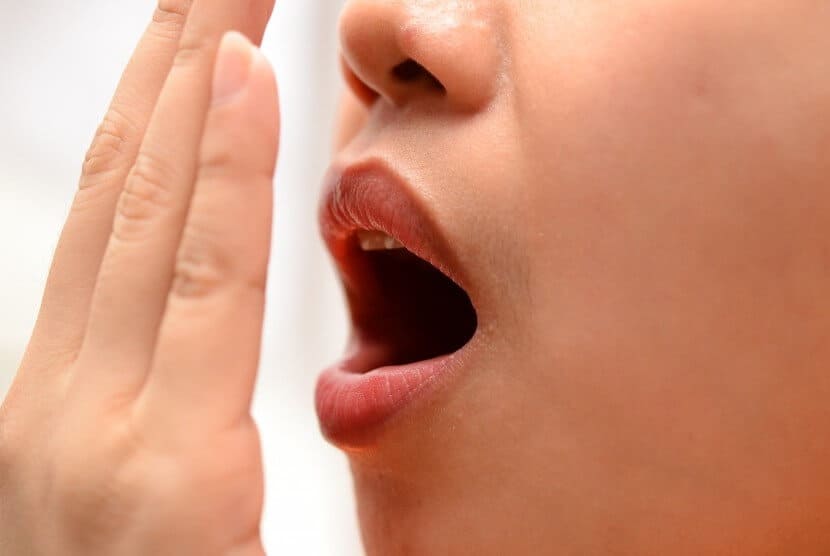Do you have a job interview coming soon, a meeting with friends or a date with the person of your dreams… and you have the not so fresh feeling or confidence due to bad breath or unpleasant mouth odor?
Halitosis, or better known as bad breath, has a high prevalence in the general population. It is estimated that more than 50% of people have it at some point in their lives. The causes of halitosis can be multiple, from poor oral hygiene, to diseases as serious as lung cancer, to chronic gastritis, although the vast majority have their origin in the mouth itself. Halitosis is very common on awakening in the morning, after several hours of sleep, when the structures of the mouth have been at rest and the production of saliva has been very scarce. It is more common in people over 50 years old.
It is consider a clinical issue caused by bacteria, and affects 25% of the population.
So many different reasons why people might have a dragon breath, some of them could be consider harmless and sometimes it could be a sign of something more serious. Bad breath can happen anytime with bacteria’s that lives naturally in your mouth. Your mouth also acts like a natural host that allows bacteria to grow. For example, when you eat, bacteria feed on the food left in your mouth and leave a foul-smelling waste product behind. The bad odor of the mouth is produced exactly by bacterial decomposition of food remains between the teeth, saliva, cells of the oral mucosa or blood.
Some other issues that may cause halitosis or bad breath, it could be because your mouth is not making enough saliva. Saliva is important because it washes out your mouth. If you don’t produce or have enough saliva, your mouth won’t be clean as much as it should be. Dry mouth can be caused by certain medications, salivary gland problems or by simply breathing through your mouth.
Here we share some tips for you to considerer to avoid and prevent halitosis:
- Avoid tobacco, alcohol, coffee and foods with intense taste or smell such as garlic and onion, which potentiate halitosis.
- Drink lots of fluids, specially water: it is recommended to drink between one and two liters of water a day to encourage the production of saliva.
- Brushing teeth at least three times a day and after each main meal, and most important never forget to brush before going to sleep at night. The brushing of the teeth should be performed on all their faces and should also include the back of the tongue using lingual scrapers and perform gargle to clean that area.
- If you suffer from bleeding gums, we recommend to use a soft toothbrush.
- Mouthwashes (especially those containing antiseptic agents) after brushing. It complements the dental brushing.
- Use of dental floss: to eliminate the food that remains between teeth.
- Chewing sugarless gum: It increases the production of saliva. It should not replace dental brushing. Xylitol chewing gums also have a bacteriostatic effect due to the neutralization of acids and prevent the formation of dental plaque.
- It is also extremely important to go to a dentist to explore the oral cavity, all teeth and gums. You may be advised to have a tartrectomy to remove tartar and plaque and treat dental pieces with cavities or remove the parts in very poor condition.
- If you wear removable dentures take them out at night, and clean them before using them again.
If you have any questions or concerns about halitosis please contact Dr. Mauricio Hervas at Implantation Dental Center to 954.476.0770.



